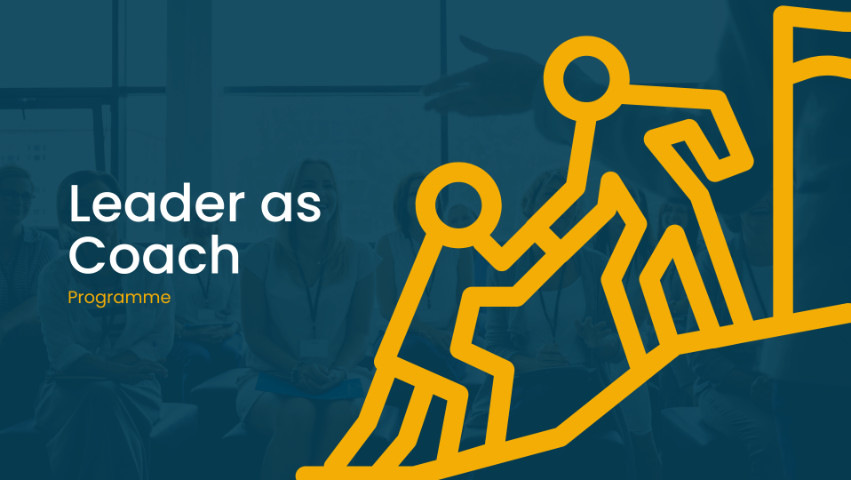Boss to Coach: The Future of Leadership in a Changing World

The world of work has changed forever.
Hybrid teams, shifting priorities, and rising expectations mean the old command-and-control playbook no longer works. Employees want more than direction, they want connection. They’re looking for leaders who listen, empower, and help them grow.
This is where the shift from Boss to Coach begins.
The Cost of Staying a “Boss”
Traditional leadership - the kind that relies on authority, hierarchy, and control - may have worked in the industrial age. But in today’s fast-moving, digital, and people-centred world, it’s draining teams and dulling innovation.
When leaders act like bosses, not coaches, the fallout is clear:
- Burnout skyrockets. Employees feel micro-managed, undervalued, and exhausted.
- Engagement plummets. People stop bringing their best ideas because they don’t feel heard.
- Turnover rises. Skilled professionals seek workplaces where they can thrive, not just survive.

A Boss approach might deliver short-term compliance, but it won’t sustain motivation, creativity, or trust - the very things modern organisations need to adapt and grow.
Why the Future Belongs to the Coach
Leaders who embrace a Leader as a Coach mindset unlock something powerful: genuine human connection. They lead through curiosity, empathy, and empowerment. Instead of issuing orders, they ask better questions. Instead of judging, they guide.
A Leader as a Coach builds capability across the team - so performance improves not because of pressure, but because people are supported to stretch, learn, and flourish.
This approach doesn’t dilute authority; it strengthens it. Coaching-led leaders foster loyalty, spark innovation, and create workplaces where people feel seen and valued.

Adapting to the New World of Work
Today’s leaders face relentless change. Market shifts, AI disruption, and evolving employee expectations demand agility and authenticity. The most successful leaders are those who can flex - moving seamlessly between leading, collaborating, and coaching.
Adopting a Leader as a Coach style helps leaders:
- Stay agile, by encouraging ideas from every corner of the team.
- Remain adaptive, by building trust and open dialogue that fuel change.
- Lead authentically, by connecting purpose with performance.
It’s not about being “softer” - it’s about being smarter. Coaching leaders empower others to take ownership, think critically, and deliver results in complex, uncertain environments.
How Our Leader as a Coach Skills Programme Transforms Leadership
At Coaching Focus Group, we’ve seen the transformation first-hand. Our Leader as a Coach Skills Programme equips leaders with the mindset, tools, and confidence to shift from commanding to connecting.
Through immersive workshops, guided reflection, and real-world application, participants learn how to:
- Cultivate a coaching mindset that fosters trust and psychological safety.
- Hold impactful conversations that inspire accountability, not compliance.
- Build resilient, high-performing teams that thrive through change.
- Embed coaching behaviours across the organisation to sustain growth.
Our proven framework helps leaders re-imagine what influence looks like - moving from control to collaboration, from telling to transforming.
From Boss to Coach: The Choice Every Leader Must Make
The question isn’t whether the world of work is changing - it’s whether leaders are changing with it. Those who continue to lead like boss’s risk losing talent, creativity, and credibility. Those who evolve into Leaders as Coaches will shape teams that are engaged, innovative, and ready for whatever comes next.
Now is the time to reimagine leadership.
Step away from command and control.
Step into connection, curiosity, and courage.
Become the kind of leader your team will remember - the one who coached them to greatness.
Why not watch our Webinar "From Boss to Coach"?

FAQs About the Shift from Boss to Coach
1. Why is the traditional “boss” style no longer effective?
Because it drains creativity and trust. Today’s employees expect connection, not control. A command-and-control approach might secure short-term results, but it stifles innovation and pushes talented people away.
2. What makes a coaching-led leader different?
A coaching-led leader leads with curiosity, empathy, and empowerment. They ask powerful questions, build trust, and help people find their own solutions. Instead of demanding compliance, they inspire accountability.
3. Does adopting a Leader as a Coach approach make leaders “softer”?
Not at all. It makes them smarter. Coaching-led leaders still hold people accountable—but they do it by creating ownership and confidence, not fear. This builds stronger teams and more sustainable results.
4. How can I start developing my coaching skills as a leader?
Begin by shifting your mindset from “telling” to “asking.” Focus on listening deeply, encouraging reflection, and empowering others to think for themselves. Our Leader as a Coach Skills Programme offers a proven framework to help you embed these skills and reimagine your impact.
Summary: Boss to Coach: The Future of Leadership in a Changing World
The workplace has evolved, and leadership must evolve with it. The old “boss” approach—based on control and compliance—no longer inspires today’s teams. The future belongs to leaders who coach: those who listen, empower, and create the conditions for growth. By shifting from command to connection, leaders can unlock engagement, spark innovation, and build resilient, high-performing teams.
Trayton Vance
Trayton Vance is the Founder and Managing Director of Coaching Focus Group, one of the UK’s leading leadership coaching consultancies. With over two decades of experience, Trayton helps organisations build coaching cultures that unlock potential, drive engagement, and create lasting impact.
Coaching Focus Group
Specialists in leadership coaching, workplace coaching programmes, and building coaching cultures that stick.
[FREE WEBINAR]
Feb 19 from 12pm to 1pm GMT

You might be interested in...



Employee Engagement Series











